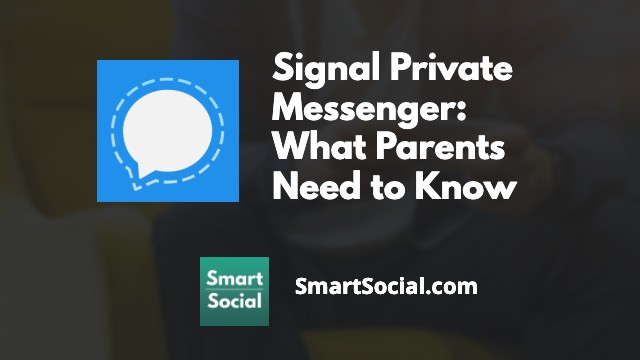TikTok App Guide: What Parents, Educators, & Students Need to Know
Green Zone App
(Click here to learn more)
Dangerous Social media challenge
(Click here to learn more)
Red Zone App
(Click here to learn more)
Gray Zone App
(Click here to learn more)
TikTok, a social media app dedicated to short-form videos, allows users to watch and create videos that are 15 to 60 seconds long. It is wildly popular among U.S. teens and young adults who enjoy watching and creating their own videos. The built-in video creation tools make it easy for users to add filters, songs, effects, and sound bites without any additional apps.
Students go to TikTok for comic relief, to escape from stress, learn “life hacks,” connect with influencers/celebrities, learn trending tips and tricks, practice video-editing skills, stay current with world happenings, and even try lip syncing to popular songs. Students may run into inappropriate content while using the app, so it is important to have an open dialogue with your student so they know what to do if they get into an uncomfortable situation.
Educators and parents: Guide your students' reflection and discussion with this student worksheet. (Log in to your Google account and select File-->Make a Copy)
View the "Sneaky Ways Video Apps Keep Teens Watching" full event replay
Parent Video
How TikTok’s Algorithm Targets Vulnerable Teens: 5 Step Safety Checklist (Parent Video)
Top Concerns about TikTok
- TikTok is owned by the Chinese company ByteDance and there have been concerns about how secure personal information is on the app
- TikTok may recommend “harmful” content to young users, although TikTok does make an effort to redirect searches for subjects such as self-harm or eating disorders to suicide and crisis phone number (Source: Good Morning America)
- The app boasts an “endless stream” of content for users to watch, which can promote addictive behavior in students
- Social media challenges encourage students to create their own videos and sometimes include students being influenced by peer pressure to perform dangerous act(s) that can get them into legal trouble
Why do students want to be on TikTok?
- TikTok has around 2 billion users and 1 in 4 users are under 20 years old (Source: ExplodingTopics.com)
- It's a great way for students to express themselves creatively
- TikTok connects friends and inspires creative things to try at home
- TikTok moderators work to remove inappropriate videos in the app
What can parents do?
- TikTok is designed to be addictive, so it is important for students to be intentional about how they are spending time on the app
- Family Pairing is TikTok’s built‑in parental control system that lets a parent link their own account to their teen’s and manage safety settings directly from their own phone
- Parents can review screen time reports with their children to know how much time they generally spend on TikTok
- Parents and students should dialogue about a student’s responsibilities and where TikTok fits in, then decide together how much time is ok to spend on the app
- Take advantage of Android's Digital Wellbeing and Apple's Screen Time settings or implement another screen time app to take control of screen time
Additional Information About TikTok
- Users must set up an account to view content in the app; however, they can view content on a desktop without an account. Their friends may text them links to videos they can watch through the web browser on their phone
- Like many social platforms, users can like, comment, save, and share posts
- Students will talk about their favorite videos or popular videos with their friends at school and may view them on their friends’ phones, even if they aren't allowed to use the device during school hours
- Students can create a second account using a different phone number or email address than their original account
- The app offers Direct Messages. This feature is automatically disabled for users under the age of 16
What is TikTok rated?
Apple App iOS app Store Rating: 12+
Google Play Store Rating: T (Teen)
App Developer website: TikTok (based in China, owned by ByteDance)
TikTok Community Guidelines
- TikTok does say they remove content that they believe violates their Community Guidelines, but inappropriate videos still get posted on other platforms and are often seen thousands of times before they are removed
- Drugs, controlled substances, alcohol, and tobacco are technically not allowed, but are very prevalent
- Accounts for users under 16 cannot use direct messaging, host livestreams, and their content cannot appear in other users’ For You feed (but students often misrepresent their age when signing up)
- Grooming behaviors are when an adult tries to build a relationship with a student to gain their trust. TikTok says they look for these types of interactions between adult accounts and minor accounts, BUT most predators work under minor aliases as part of their grooming tactic
Why should parents & educators care?
- It’s easy for students to come across mature content or triggering content that could promote negative self esteem, self-harm, or eating disorders; such content can also cause a cyberbullying problem that can move offline
- Accounts for students aged 13-15 are automatically set to private, and duet and stitch are disabled for users under age 16
- Users cannot change their age on TikTok without talking to customer support; however, they can enter their age incorrectly when they initially set up their account
- Students can find ways to prevent content from getting flagged and to bypass TikTok’s content filters by using creative hashtags and purposely misspelling words
Examples of TikTok dangers from the news

TikTok has more than a billion users. That includes about 150 million Americans. Under China’s authoritarian state, the government has sweeping control over tech companies and their data. U.S. officials are worried that China will use TikTok to promote its interests and gather Americans’ personal information. - The New York Times

The (TikTok) algorithm recognizes vulnerability and, instead of seeing it as something it should be careful around, it sees it as a potential point of addiction – of helping to maximize time on the platform for that child by serving them up content that might trigger some of the pre-existing concerns. - The Guardian

Ava Majury downloaded TikTok when she was 13…Ava noticed that one fan was trying to get her attention in comments on TikTok. He messaged her in Snapchat and on Instagram, and turned up in online games she played with her brothers… The fan was an 18 year old man who arrived with a shotgun at Ava’s family home. - The New York Times
Settings and Privacy Recommendations for TikTok
Family Pairing

- Family Pairing through TikTok allows families to work together to set screen time limits and monitor what the teen can see
- Family Pairing does require the adult to have an account on their own device, but even if you don’t use it every day, we always recommend parents being on the same apps as their kids
From the parent’s TikTok account, Family Pairing can be used to help the student with:
- Screen Time Management, such as daily time limit and scheduled "time away" when TikTok will not be available to your teen
- Restricted Mode, which limits inappropriate content
- Limits what content can be seen
- When Restricted Mode is on the user cannot log out to then log into another account
- Search - parents can decide if their child can search for videos, hashtags, sounds, or creators
Go to Settings and privacy:
1: Scroll down and tap "Family Pairing”
2: Select the "Teen" option
3: Open TikTok on the parent’s phone and go to the Family Pairing screen in "Settings & Privacy"
4: Select "Parent"
5: Use your teen’s device to scan the QR code on the parent’s device or send an invite link to a phone number, email, or social media platform
Family Pairing Recommendations
- Privacy and safety
- Private account: Keep your account private until you are ready
- Who can send direct messages to your teen: Our recommendation is “Friends” or “No one”
- Who can view your teen’s liked videos: Our recommendation is “Only your teen”
- Who can comment on your teen’s videos: Our recommendation is “Friends” or “No one”
How to set your TikTok account to private
- Select “Profile” then press the three lines in the top right corner
- Click on "Settings and privacy" in your settings
- Select “Privacy” and slide “Private account” over until it turns blue

How to set your liked videos to private
- Click on "Privacy" in your settings
- Tap “ Liked videos”
- Select “Only you”

How to turn off Stitch and Duet
Stitch and Duet are functions that allow user content to be reposted and shared by other users and can potentially be a source of cyberbullying. It is disabled for users under 16. Older users may still want to disable this setting.
- Click on "Privacy" in your settings
- Find “Duet” and “Stitch”
- Select “Only me” on each of them
.jpeg)
How to Limit Who Can Send Messages and Comment on TikTok Videos
- Click on "Privacy" in your settings and then select “Comments”
- Click the slider next to “Filter all comments” so that it turns blue
- Click on “Comments” and select “Followers that you follow back.” This will ensure students do not receive direct messages from strangers

Branding your TikTok profile
1: Start by branding your profile to put your best foot forward. Click on “profile” then “Edit Profile” to get started
2: Profile Photo: Use a clear smiling photo of yourself (the same photo across all of your accounts)
3: Name: Use the name you will use on your college admissions (or what you go by most often)
4: Username: Use something very similar to the name people will Google when they learn about you
5: Bio: Write 1-2 lines about yourself and possibly what school you attend (when you are ready for colleges to find you)
6: Connect your Instagram and YouTube: Optional adding links to your social profiles
Additional Resources
Positive Impact of Social Media & Screen Time (What Students, Parents, & Educators Need to Know)
Making Screen Time Fun While Reducing the Negative Impact
Instagram App Guide (2024): What Parents, Educators, & Students Need to Know
Social Media Challenges: What Students, Parents & Educators Need to Know
Conclusion
TikTok is an extremely popular app among students. Parents can work with their students to find ways to use the app safely and in a way that fits with their family values. It is important to engage in a dialogue about appropriate ways to use TikTok, current social media challenges, and what to do in the event that students come across content that makes them feel uncomfortable.
Protect your family and enter for a chance to win cool prizes
Become a member or log in to learn more on this topic
Protect your family and enter for a chance to win cool prizes

., start learning from this page to earn points!*
Hello, I'm Josh, the founder of SmartSocial.com.
Don't leave this page until you fill out our feedback form that will appear after you learn from the resources...
Become a Very Informed Parent (VIP) to get our social media suggestions in your email every Tuesday & Thursday.



Hello, I'm Josh, the founder of SmartSocial.com. Protect your family by taking my 1 minute quiz
This quiz will help you understand how safe your family is


Schools & Districts: Partner with us to protect your community online
Our remote presentations (and website) teach over a million parents and students each year how to be safe so they can shine online. We teach students how their accounts can be used to create a portfolio of positive accomplishments that impress colleges and employers.


Join Our Smart Social Podcast
each week on iTunes
With over 500 episodes, Josh Ochs interviews psychologists, therapists, counselors, teachers, and parents while showing you how to navigate social media to someday shine online.
Listen on:




.jpg)

.jpg)
.jpg)
.jpg)
.jpg)
.jpg)


.jpg)


